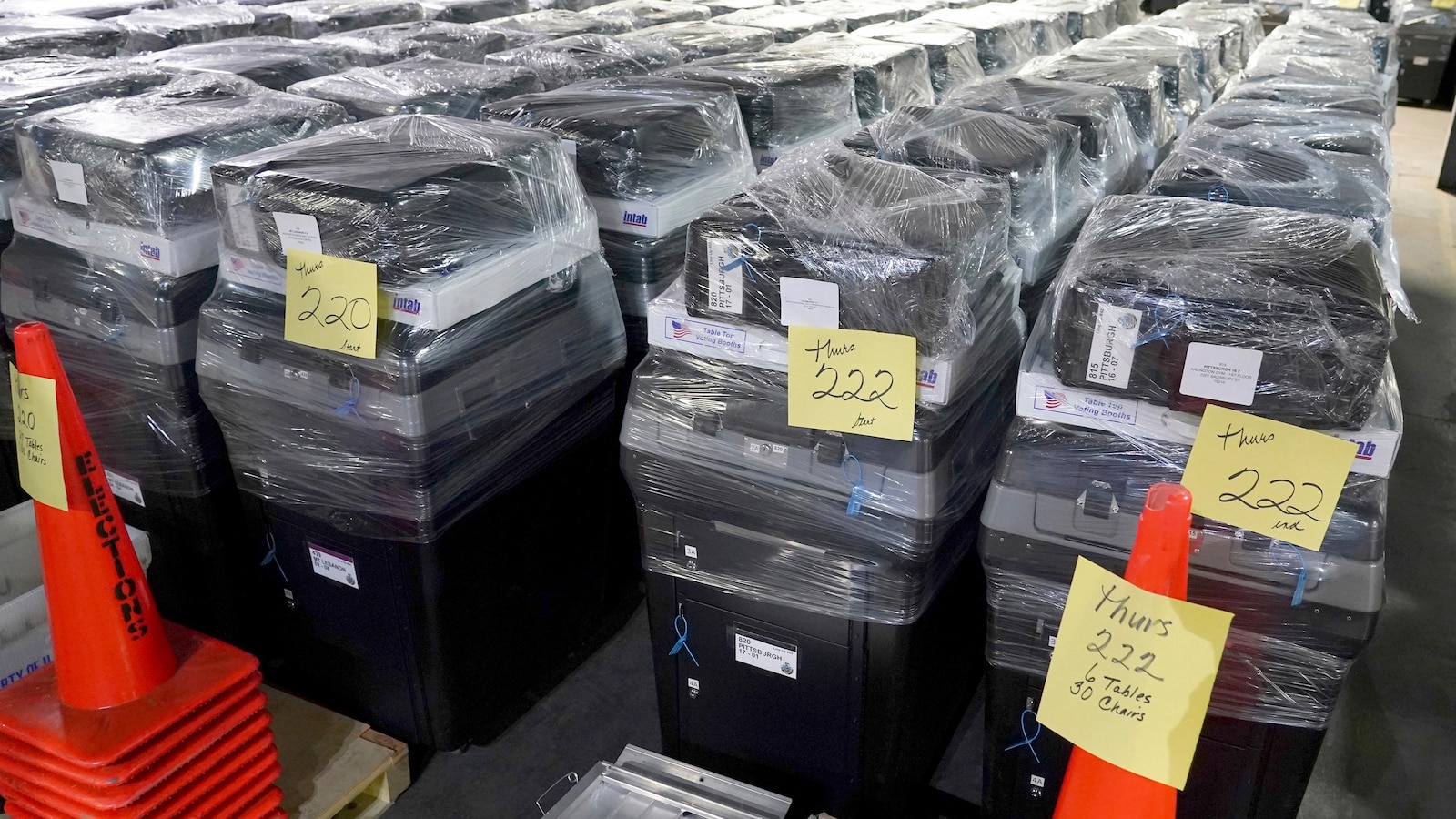Election security experts have consistently maintained that altering the results of a presidential race through hacking is virtually impossible due to robust safeguards, including comprehensive audits and decades of work by election officials and volunteers. However, adversaries might not need to change the vote count to achieve their objectives. Instead, they could aim to erode public trust in the electoral process itself.
This tactic, known as “perception hacking,” could involve releasing misleading documents or videos that falsely suggest electoral fraud or system vulnerabilities. Intelligence analysts warn that such disinformation campaigns could effectively sway public sentiment, leading many to distrust the legitimacy of the election results without any actual tampering occurring.
Recent discussions among cybersecurity experts highlight the ease with which misinformation can spread. Adam Darrah, a former CIA political analyst and current Vice President at the cybersecurity firm ZeroFox, expressed concern over how easily individuals can be led to believe that election systems are insecure. “It’s a way to create panic,” he stated, emphasizing that emotional resilience is as critical as technical security.
As election day approaches, factors such as narrow victory margins or delays in vote counting may further fuel this potential for perception hacking. Such scenarios could mislead large segments of the electorate, increasing polarization and raising the risk of political violence, while complicating the transfer of power in January.
Intelligence officials recently issued warnings that adversarial nations, particularly Russia and Iran, may seek to incite violent protests in the U.S. post-election. The intelligence community believes that while the Kremlin appears to support former President Donald Trump, its broader goal is to create divisions among Americans and weaken support for U.S. involvement in Ukraine and NATO.
Despite denials from both Russia and Iran regarding their involvement in U.S. elections, the focus of adversaries seems to lie in propagating disinformation rather than compromising the voting infrastructure itself. A spokesperson from the Russian embassy in Washington stated via email, “We have never interfered, are not interfering, and do not intend to interfere.”
Even in the absence of foreign interference, election-related stories about long lines, ballot issues, or other irregularities can serve as fodder for those seeking to undermine trust in the electoral system. This phenomenon was evident during the 2020 elections, as claims of electoral issues fueled the insurrection attempt at the U.S. Capitol on January 6, 2021.
Former President Trump has been actively preparing to contest the outcome of the upcoming elections, framing the narrative that his potential loss is only achievable through Democratic deception. During a rally in Michigan last month, he asserted, “They cheat. That’s the only way we lose, because they cheat.”
The days immediately following the election are anticipated to be pivotal, as the nation grapples with the results of what may be a contentious race. Paul Barrett, a law professor at New York University who studies online discourse and polarization, highlighted that authoritarian regimes or domestic anti-democratic groups could exploit this moment to escalate distrust among Americans.
In response to these threats, national security and election officials across the country are working to debunk disinformation and mitigate the spread of rumors. Top intelligence officials have conducted briefings to underscore the security of the electoral infrastructure, while cybersecurity and election authorities are actively communicating the safeguards in place.
For instance, a recent video circulated on social media purportedly showed someone destroying mail-in ballots in Pennsylvania. Bipartisan election officials in Bucks County quickly dismissed the video, linking it to a Russian disinformation campaign aimed at discrediting Democratic candidates, including Vice President Kamala Harris.
Kim Wyman, a former Washington Secretary of State who has worked with cybersecurity agencies, emphasized the importance of immediate clarification of such misinformation, stating, “That video was quickly debunked, and I know Bucks County jumped on it to explain why it was fake and why voters should trust the process.”
Nevertheless, once misinformation is disseminated, its presence continues to pose challenges. Experts suggest that voters can help combat perception hacking by consulting diverse information sources, questioning anonymous social media claims, and verifying facts with their state and local officials.
As uncertainty and emotions run high in the days following the election, these are precisely the conditions that foreign adversaries and domestic extremists may exploit to undermine trust in U.S. democracy. Cait Conley, a senior advisor at the Cybersecurity and Infrastructure Security Agency (CISA), emphasized the need for collective vigilance: “Our foreign adversaries are trying to undermine our democratic processes, and we need the help of all Americans to ensure they do not succeed.

